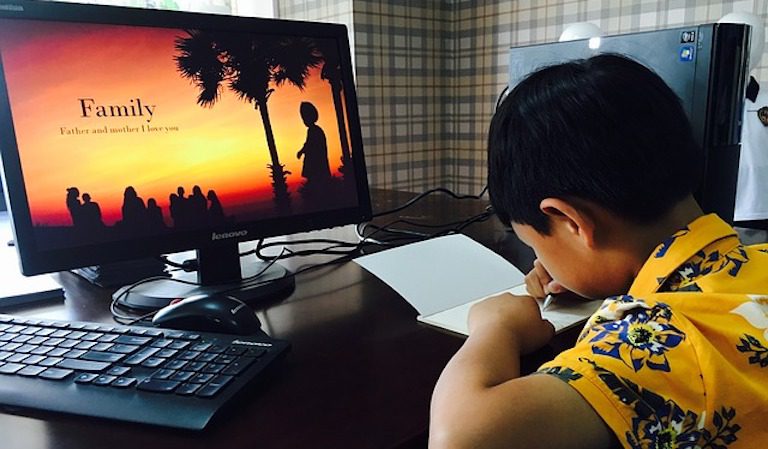
By GREG SOMMERS
Our current wave of school closures is yielding an unprecedented shift to online and distance learning.
Some are meeting this shift with a surge of enthusiasm for innovation. Others are approaching it more cautiously. I wonder — for my own children and for kids around the country — what the students’ experiences will be like on this frontier. Will education leaders aim only to reproduce their current experiences, or will leaders empower educators to use this opportunity to revitalize learning?
Several years ago, I was part of a group discussion led by Chris Bradford, the innovative CEO of the African Leadership Academy. Chris asked a room of educators to write down a set of words they associate with the term “education.” People dutifully made their lists: desks, bells, tests, teachers, textbooks and rules. Then, Chris asked the group to note words they associate with the term “learning.” Everyone furiously scribbled down words like challenge, excitement, curiosity, growth, risk and fun.
Without more fundamental changes to systems and conditions, technology will amplify inequities, not solve them.
Truly turning “education” into “learning” – that’s the crisis-as-opportunity our students need us to prioritize as our field rushes to respond to coronavirus closures. Without more fundamental changes to systems and conditions, technology will amplify inequities, not solve them. So we need to use this moment to produce new models of learning. We need to transform the student experience.
How do we begin to do this?
1. Re-establish connections for every out-of-school student in this country with a caring adult from their school. Ensuring access needs to be the highest priority to accomplish this driver of learning, even as we develop or adopt new innovations.
2. Discover fresh ways to ignite the interests and channel the motivation of students. This will require looking at curriculum not as something to move through, but rather as something to pull students into.
3. Develop better ways to scaffold student skills for reflection and metacognition. The 1:1 or 1:few agility that technology offers can be advantageous for accomplishing this.
4. Create online environments that support students with their agency and learning for mastery. It will become even more critical that we offer students opportunities for refinement and revision, rather than mere completion.
5. Ensure effective communication. As students rely on technology for a greater share of their communication, they’ll need feedback on the best ways to communicate with different audiences and purposes.
We need to challenge ourselves to examine critically — and ask students about! — what it’s like to learn in this new way.
Whatever our immediate approach to distance and online learning is, I think we need to challenge ourselves to examine critically — and ask students about! — what it’s like to learn in this new way. And we need to listen to students about how best to support them through this shift.
If you’re an educator seeking to change not only the mode but also the model of student learning, we’re eager to learn more about how you are approaching this. Please share your anecdotes and stories: tag us on Twitter @UWCEL #CourageousLeaders.
Amid disruption and uncertainty, we’re also facing a unique opportunity to ensure that “education” takes on new meaning — and makes way for equitable participation in learning that is enriching and empowering. Embracing this challenge will allow us to transform student experiences, now and in the future. And if we do, young people will be able to shape their own paths to becoming whomever and whatever they aspire to be.

